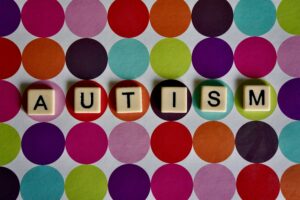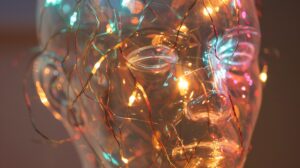Eating disorders are complex mental health conditions that intersect with brain chemistry, emotions, and behavior patterns. While challenging, these conditions are treatable through various therapeutic approaches, including targeted medication strategies. Understanding the role of compulsive patterns in eating disorders helps us appreciate why comprehensive treatment approaches can be so effective.
Understanding Different Presentations
Each person’s experience with an eating disorder is unique, though certain patterns may include:
- Restrictive Patterns: Some individuals experience intense urges to limit food intake, often accompanied by persistent thoughts about food and body image
- Binge-Eating Patterns: Others may experience episodes of eating larger amounts of food, accompanied by a sense of losing control
- Compensatory Behaviors: Some people may feel driven to engage in behaviors to counteract eating, such as excessive exercise
- Mixed Patterns: Many individuals experience variations or combinations of these patterns
The Role of Brain Chemistry and Medication
Research shows that eating disorders involve complex interactions within the brain’s reward and regulation systems. This understanding has led to significant advances in treatment, particularly in the development of medications that can help manage these neurological patterns.
Comprehensive Medication Options
Modern medication approaches offer various ways to support recovery:
- Antidepressants
- Selective Serotonin Reuptake Inhibitors (SSRIs) help manage co-occurring depression and anxiety
- Can reduce compulsive behaviors and support overall mood regulation
- Other antidepressant classes may target specific emotional or behavioral symptoms
- Atypical Antipsychotics
- Help reduce obsessive thoughts about food and body image
- Support weight restoration when needed
- Can improve overall mood symptoms
- Stimulant Medications
- May help reduce binge eating urges
- Work by affecting brain reward pathways
- Can help manage impulsive eating behaviors
- Antiepileptic Medications
- Sometimes used to manage binge-eating behaviors
- Can help with mood regulation and impulsivity
- Prescribed carefully with attention to potential side effects
- Mood Stabilizers
- Support emotional regulation
- Particularly helpful when mood disorders co-occur
- Can help manage behavior-related urges
- Anti-Anxiety Medications
- Provide short-term relief from acute anxiety
- Can help reduce stress around food-related situations
- Used cautiously as part of a comprehensive treatment plan
Joyspring Health & Recovery. Nurturing Joy. Inspiring Resilience.
Your partner in mental wellness, supporting you every step of the way toward a more fulfilling life.
A Story of Hope: Emma’s Recovery Journey
Consider Emma’s experience. As a university student, she found herself caught in increasingly rigid patterns around food and exercise. What began as subtle changes in her eating habits gradually intensified. The breakthrough in her recovery came when she learned about the biological basis of her condition and began a comprehensive treatment program.
Working with healthcare professionals, Emma participated in a treatment plan that included:
- Regular sessions with a therapist
- Consultation with a nutrition specialist
- Carefully selected medications to address both compulsive thoughts and anxiety
- Group support sessions
Through this integrated approach, Emma gradually developed new patterns and found her way to recovery. Her medication plan, adjusted over time by her healthcare team, played a crucial role in helping her manage both the physical and emotional aspects of recovery.
Modern Treatment Approaches
Today’s treatment options offer multiple pathways to recovery:
Therapeutic Support
- Cognitive-behavioral therapy helps identify and modify thought patterns
- Family-based therapy provides crucial support systems
- Nutritional counseling offers practical guidance for establishing balanced eating patterns
Medication Management
- Personalized medication plans address specific symptoms
- Regular monitoring ensures optimal effectiveness
- Adjustments made as needed throughout recovery
Additional Support
- Group therapy provides community understanding
- Regular medical monitoring ensures physical health
- Stress management techniques build coping skills
The Importance of Early Support
Seeking help early can significantly improve outcomes. Modern treatment approaches, especially when started promptly, can effectively address both the behavioral and biological aspects of eating disorders. The combination of appropriate medication and therapeutic support often provides the most comprehensive path to recovery.
Looking Forward
Recovery from eating disorders is an achievable goal. With our current understanding of brain chemistry and compulsive patterns, healthcare providers can offer targeted treatments addressing both the psychological and biological aspects of these conditions. Comprehensive care, including psychiatric evaluation and treatment, psychotherapy, and support systems, empowers individuals to work towards recovery and renewed well-being
Remember: If you or someone you know is experiencing challenges with eating patterns, you don’t have to face them alone. Contact Joyspring Health and Recovery here for an evaluation consultation and discussion of treatment options that best suit your individual needs.
Disclaimer: This article is for educational purposes only and is not intended as medical advice.
American Psychiatric Association – Diagnostic and statistical manual of mental disorders (7th ed.).
Bulik, C. M., Brownley, K. A., Shapiro, J. R., & Mitchell, K. S. (2019). Psychological treatments for eating disorders.
Lock, J., & Le Grange, D. (2013). Treatment manual for anorexia nervosa: A family-based approach (2nd ed.).
Treasure, J., Duarte, T. A., & Schmidt, U. (2020). Eating disorders.
Helpful Resources:
- National Suicide Prevention Lifeline: Call 1-800-273-8255 if you or someone you know is having thoughts of suicide.
- Alliance for Eating Disorders Awareness
https://www.allianceforeatingdisorders.com/ - Eating Disorder Hope
https://www.eatingdisorderhope.com/ - Eating Disorders Anonymous
https://eatingdisordersanonymous.org/ - Multi-Service Eating Disorders Association
https://www.medainc.org/ - National Association of Anorexia Nervosa and Associated Disorders
https://anad.org/ - National Eating Disorders Association
https://www.nationaleatingdisorders.org/




